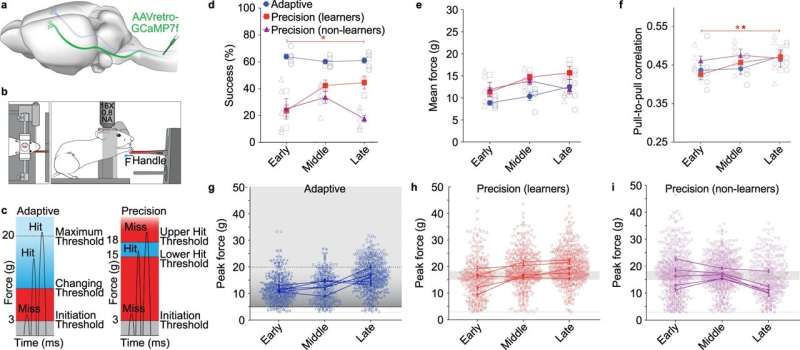This article has been reviewed according to Science X's editorial process and policies. Editors have highlighted the following attributes while ensuring the content's credibility:
fact-checked
peer-reviewed publication
proofread
Task-specific modulation of corticospinal neuron activity during motor learning in mice

Learning motor skills depends on the brain's ability to change, or be plastic. Specifically, the primary motor cortex of the brain can change as a person learns new motor tasks. When someone learns a complex task that involves fine motor control, like grasping an object, their brain undergoes large changes in the representation of the body part that controls the fine movements. In contrast, simpler tasks do not lead to such changes.
In a new study published in Nature Communications, researchers at Burke Neurological Institute investigated the role of a specific group of neurons, called corticospinal neurons, in learning and performing different motor tasks. Corticospinal neurons provide output from the brain directly to the spinal cord. The researchers used calcium imaging to measure activity in these neurons in mice as they learned to perform two different tasks: one that required precise movements of the forelimb, and another that was simpler and did not require as much precision.
The researchers found that the activity of corticospinal neurons was different depending on the task the mice were performing. Specifically, the neurons showed patterns of activity that were associated with the timing of the precise movements required for the more complex task, but not for the simpler task. Further experiments showed that corticospinal neuron activity was necessary for performing the complex task, but not the simpler one.
Overall, these findings suggest that the corticospinal network in the brain plays an important role in learning and executing precise motor movements.
More information: Najet Serradj et al, Task-specific modulation of corticospinal neuron activity during motor learning in mice, Nature Communications (2023). DOI: 10.1038/s41467-023-38418-4



















